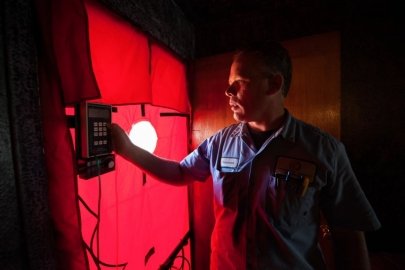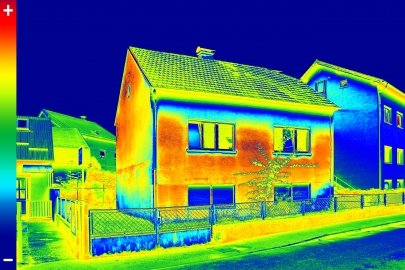A professional energy assessment can provide an expertly designed roadmap to saving money and improving the comfort of your home.
Tax Credits for Home Energy Audits
The Energy Efficient Home Improvement Tax Credit (25C), authorized through the Inflation Reduction Act, provides taxpayers with a financial incentive to obtain a home energy audit. The home energy audit tax credit offers 30% of the cost of a home energy audit, up to $150 per year.
To be eligible for the tax credit, the energy audit must be completed by a home energy auditor with a professional credential recognized by DOE. Check out the DOE’s list of recognized training and credentialing programs for home energy auditors.
Learn how to ensure your home energy audit qualifies for a $150 tax credit.
Finding and Selecting an Energy Assessor
Home energy assessments are conducted by professionals who have industry-recognized credentials. Selecting a certified home energy auditor assures you that the auditor is uniquely skilled and qualified to perform energy assessment work.
There are several places that may be able to help you locate nearby professional energy assessment services.
- Your state or local government energy or weatherization office may be able to help you identify a local company or organization that performs audits.
- Your energy utility may conduct residential energy assessments or recommend local auditors.
- You may find directories on the websites of qualified energy audit certification programs.
- Look for a Home Energy Score Certified Assessor™ through the U.S. Department of Energy's Home Energy Score program. Similar to a vehicle’s miles-per-gallon rating, a Home Energy Score™ estimates a home’s energy use and recommends ways to reduce energy and cut costs. Look on the map to find a nearby Home Energy Score Certified Assessor, then follow the steps below.
Before contracting with an energy assessment company, you should take the following steps:
- Get several references and contact them all. Ask if they were satisfied with the work.
- Call the Better Business Bureau and ask about any complaints against the company.
- Inquire to determine if your audit will be performed by a qualified home energy auditor, so as to be eligible for the 25C tax credit. A qualified home energy auditor is defined as an individual who is certified by one of the Qualified Certification Programs at the time of the audit, or under the supervision of a qualified home energy auditor.
- Ask the energy auditor what tools they use in their assessments, for example if they will use a blower door to test air leakage or conduct a thermographic inspection. Also ask whether they offer a U.S. Department of Energy Home Energy Score report as part of their assessment.
Preparing for an Energy Audit
Before the energy assessor visits your house, make a list of any existing problems such as condensation and uncomfortable or drafty rooms. Have copies or a summary of the home's yearly energy bills. (Your utility may be able to provide these to you or you may be able to get them online.) Assessors use this information to establish what to look for during the audit.
The assessor will also talk with you to better understand your needs and interests in having an assessment. The assessor will examine the home to determine its size and features (e.g., wall area, number and size of windows, insulation levels). The assessor then will analyze how you use your home:
- Is anyone home during working hours?
- What is the average thermostat setting for summer and winter?
- How many people live in the home?
- Is every room in use?
Your answers may help uncover some simple ways to reduce your household's energy consumption.
The Audit Process and Recommendations
Professional energy assessments generally go into great detail to assess your home's energy use. The energy assessor will do a room-by-room examination of the residence, as well as a thorough examination of past utility bills. Walk through your home with the assessor and ask questions. Many professional energy assessments will include a blower door test and a thermographic scan. Assessors may use equipment to detect sources of energy loss, such as blower doors, infrared cameras, furnace efficiency meters, and surface thermometers. Check out the Energy Saver 101 home energy audit infographic to get an idea of what energy assessors look for and to learn more about the special tools they use to conduct an assessment.
Through the process, the home assessor will gather information and produce a report including characterizations of your home and action you can take to reduce your home's energy use while increasing comfort of the living space. Common recommendations often include:
- Conduct whole-home air sealing to reduce air leakage and drafts.
- Add insulation to your home's attic, foundation, or walls to prevent heat loss.
- Seal and insulate ducts in unconditioned spaces.
- Remove or repair any parts of the home with internal moisture or mold to improve air quality and reduce deterioration.
- Improve the efficiency of heating, cooling and hot water equipment.
- Install home ventilation, smart thermostats, LEDs, smart power strips, ENERGY STAR appliances, solar PV, an electric vehicle charger, and other efficient technologies that improve home performance.
The right mix of improvements to your home will depend on the age and quality of current equipment, the local climate, and your home energy goals.
Professional Home Energy Audits
Subscribe to receive updates from Energy Saver, including updated content and energy saving tips for consumers and homeowners.




